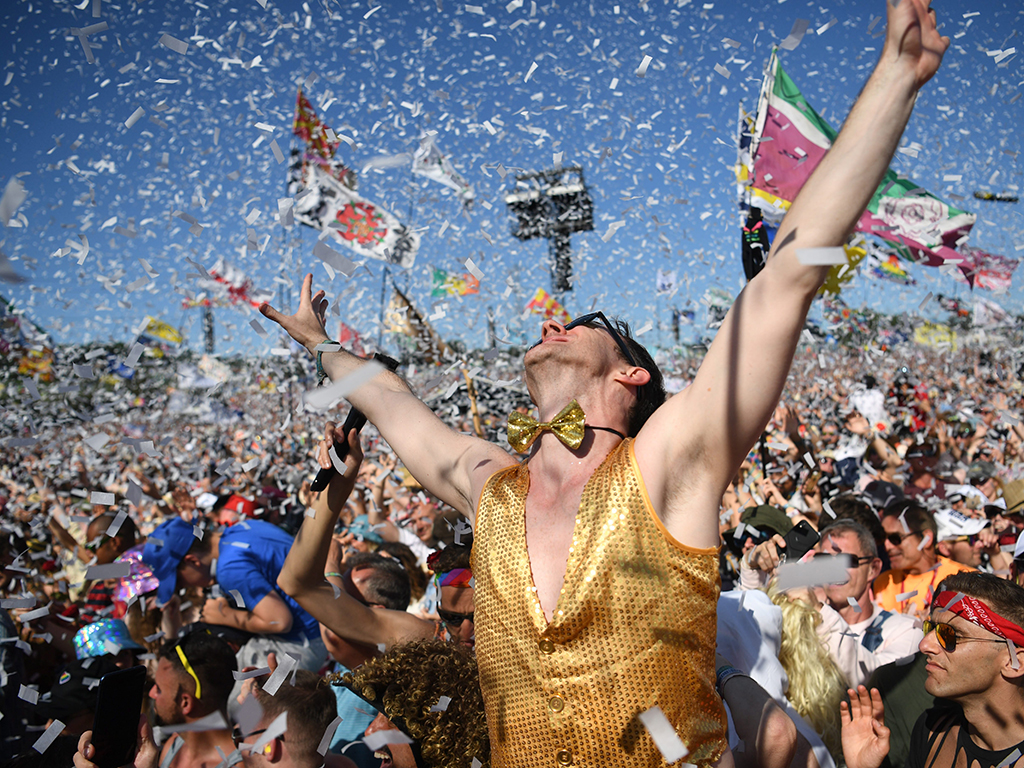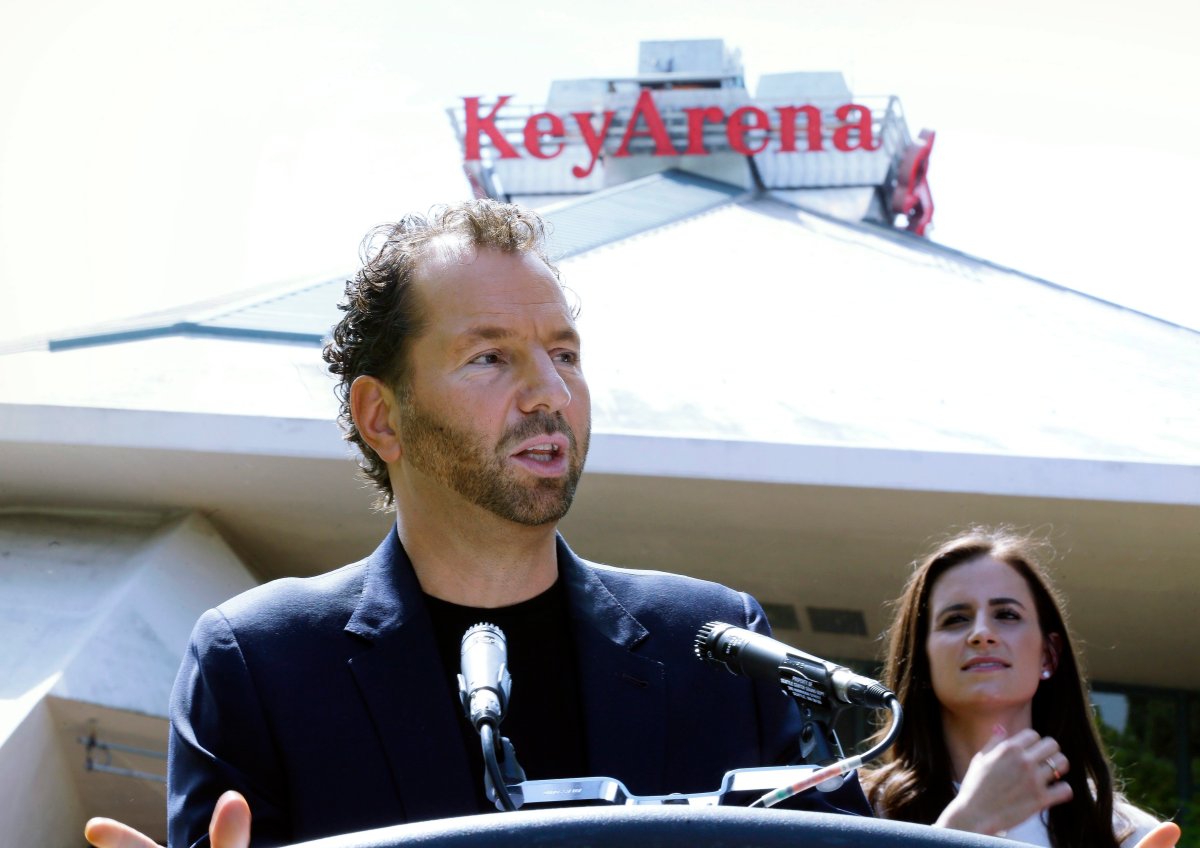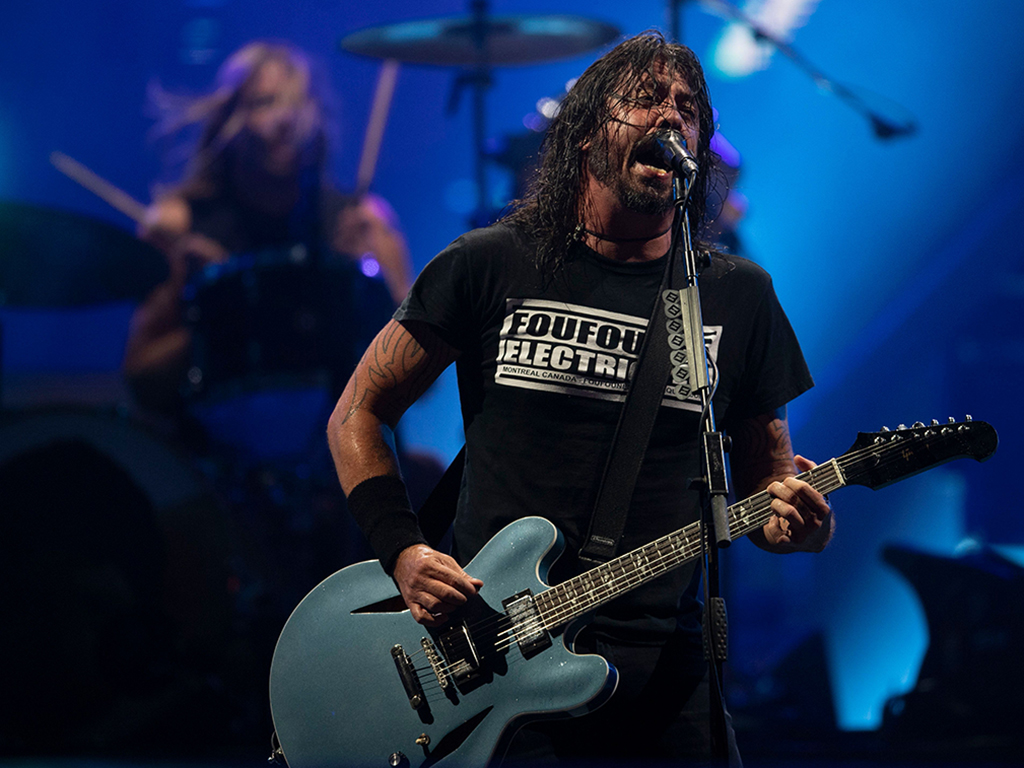Still holding onto those tickets — and hopes — despite your event(s) being postponed as a result of COVID-19? Well, you’re not alone. A whopping 90 per cent of concertgoers are doing the same, according to Live Nation‘s Michael Rapino.

On May 7, during a first-quarter earnings call, the global entertainment giant’s president and CEO shared that statistic while indirectly providing concertgoers with an overall update on the uncertain state of live events in 2020.
Detailing the company’s plan of action during the pandemic, the Thunder Bay, Ont.-born businessman said Live Nation’s goal is to have customers back at venues of all sizes in time for 2021, according to Variety.
However, before worldwide operations are back at “full scale,” Rapino said the company will “start slow” by spending the next six months “testing regionally” with “smaller” and more “secure” events like “fan-less” concert broadcasts.
“Whether it’s in Arkansas or (another) state that is safe, secure and politically fine to proceed in, we’re going to dabble in fan-less concerts with broadcasts and reduced-capacity shows because we can make the math work,” he said.
Rapino added that if by fall there are no “second hot spots,” then bigger venues will slowly start to reopen around the world.
“In the fall, you’ll see more experimenting and more shows happening in a theatre setting, into some arenas,” he said, highlighting Europe and Asia specifically.
“There are a lot of great artists that can sell out an arena, but they’ll do higher-end theatres or clubs. So you’re gonna see us (gradually reopening) in different countries, whether it’s Finland, Asia, Hong Kong — certain markets are farther ahead (in the recovery process).”

On whether putting on smaller-scale shows would run a financial risk to Live Nation, Rapino said the company’s “greatest strength” is its “global diversity.”

Get daily National news
“Unlike sports, we have very diverse sizes of shows,” he said. “We did 15,000 club and theatre shows in 40 countries last year.”
Rapino also suggested “reduced-capacity festivals” as an option. He said they could take place either outdoors or on a large stadium floor “where there’s enough room to be safe” by social distancing.
Despite the company’s 20 per cent plummet in revenue, Rapino said Live Nation’s priority was the safety of the fans, adding that the company could survive financially for the rest of the year if need be without hosting any events.
Using 18-year-old pop star Billie Eilish‘s postponed tour as an example, Rapino said none of the company’s scheduled events are time-dependent.
“We have a lot of shows, and looking at this as a glass-half-full, thankfully our shows are not time-dependent: fans wanted to see Billie Eilish in March, but they’ll (have to) wait till October or until February,” he said.
Reiterating the corporation’s overall comeback strategy, Rapino concluded: “Our goal is to (have all events back on) sale in the third and fourth quarters for 2021 (to be back) at full scale.”
Global News has reached out to a representative of Live Nation seeking further comment.
In a piece for the Atlantic on Monday, Foo Fighters frontman Dave Grohl wrote about missing the concert-going experience of “a big old plate of sweaty, ear-shredding, live rock and roll” during the pandemic.
“In today’s world of fear and unease and social distancing, it’s hard to imagine sharing experiences like these ever again,” he wrote. “I don’t know when it will be safe to return to singing arm in arm at the top of our lungs, hearts racing, bodies moving, souls bursting with life.”
Grohl and co. were set to play FedEx Field, just outside of Washington, D.C., on July 4 to celebrate the 25th anniversary of the Foo Fighters‘ self-titled debut album, however it was postponed — along with an entire tour — as a result of COVID-19.
Providing fans with some hope, the Everlong singer concluded: “I know that we will do it again, because we have to. It’s not a choice. We’re human. We need moments that reassure us that we are not alone. That we are understood. That we are imperfect. And, most important, that we need each other.”
Questions about COVID-19? Here are some things you need to know:
Health officials caution against all international travel. Returning travellers are legally obligated to self-isolate for 14 days, beginning March 26, in case they develop symptoms and to prevent spreading the virus to others. Some provinces and territories have also implemented additional recommendations or enforcement measures to ensure those returning to the area self-isolate.
Symptoms can include fever, cough and difficulty breathing — very similar to a cold or flu. Some people can develop a more severe illness. People most at risk of this include older adults and people with severe chronic medical conditions like heart, lung or kidney disease. If you develop symptoms, contact public health authorities.

To prevent the virus from spreading, experts recommend frequent handwashing and coughing into your sleeve. They also recommend minimizing contact with others, staying home as much as possible and maintaining a distance of two metres from other people if you go out.
For full COVID-19 coverage from Global News, click here.
—












Comments